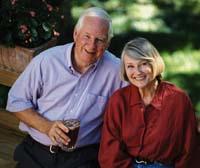Eat little, live long

In the following years this work was forgotten or rejected, since it was a small experiment and other researchers also obtained reverse results in similar tests. However, as more research was done, it was shown again that the reduction in the amount of food entails an extension of life, not only in the mouse, but also in rats, yeasts, fruit flies, fish, hamsters and dogs.
Experiments are now being conducted in humans. Men and women live longer than other animals, so there are still no definite results. That's why there are many more questions than answers.
However, there are those who do not hesitate and set as an example the inhabitants of Okinawa. A study conducted in 1978 revealed that on this Japanese island people over a hundred years old were more numerous than anywhere else: in most developed countries, between 10-12 out of 100,000 people over a hundred years of age and in Okinawa the 34. The same study showed that the inhabitants of the island received 20% less calories than those of developed countries. Are these two data related?
CALERIE, first results
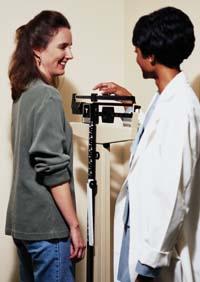
With the aim of clarifying doubts, the American Institute of Aging (NIA) is conducting a study on the long-term impact of low-calorie diets. The experiment, called CALERIE, had the participation of 48 men and women divided into two groups. For six months, some have ingested the calories needed to maintain their previous weight, while others have ingested 25% fewer calories than they would need to keep it.
The results of the first phase were published in April. Compared to the rest, those who took few calories have observed that they had a lower blood insulin concentration and a lower body temperature. Both characteristics are common in animals and people of long life.
The second phase has now begun with 200 people, which will last two years. It should be noted that volunteers involved in the research are not obese. In fact, other research has also involved the most obese, so if at the end of the research they had a better health it was difficult to know to what extent it was due to simple thinning.
Despite the good weight of volunteering, measuring the effect of low-calorie diets in the aging process is not easy, as there is no standard indicator of aging. However, according to the researchers of the CALERIE experiment, in a first phase there are indications that a low caloric intake influences the aging processes at the cellular level.
For example, those who have been on a low-calorie diet for six months have been reduced to both insulin resistance and blood ldl-cholesterol levels, leading to a low risk of diabetes and circulatory problems. And these diseases are the most common in old age.
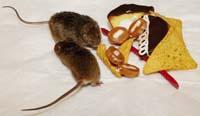
Looking for explanations
One knows if once the CALERIE experiment has been completed, the researchers will also have solid effects on how low caloric intake influences life. However, and without waiting for it, a series of hypotheses have been proposed to explain the biological mechanism of the supposed influence from experiments with other living beings.
Last year Edward J. The research expert Masoro collected in an article what scientists know and do not know about low calorie diets, aging and lengthening of life. The article was published in the journal Mechanisms of Ageing and Development, which presents the seven hypotheses that have been proposed so far and their arguments in favor and against.
The first hypothesis dates from 1935. From a study with rats, the authors concluded that the key was to slow down growth, that is, taking few calories the growth slows down and, therefore, lengthens life.

Until the 1980s, the hypothesis had strength. But then, Masoro himself and many others did other investigations and, according to the results, the hypothesis was erroneous. However, similar research has recently been carried out with rats and mice and it seems that the hypothesis does not serve rats, but it does for mice.
More hypotheses More hypotheses
In 1960 they proposed a hypothesis based on the reduction of body fat. The age of death of the rich in fats is lower than the average. Therefore, slimming is a lengthening of life that is achieved with a low-calorie diet.
In later studies, genetically modified mice have been worked to have little fat, and they have seen that in reality the diet does not influence the length of life, but the amount of body fat. In addition, they have discovered that behind there are Sirtuin proteins.
In 2000, it was shown that a sirtuin protein, SIR2, is essential to lengthen life through a low-calorie diet in yeasts. They have continued to investigate and it seems that the reason is that the sirtuin protein prevents fat accumulation, which helps reduce the amount of fat in adipose tissue. However, it is not yet clear, the relationship between calorie reduction and the activity of sirtuin proteins is being investigated.
The third hypothesis is that a low caloric contribution prolongs life by moderating the metabolism. The hypothesis is supported by two pillars: on the one hand, people who make low-calorie diets are slowed down their metabolism; on the other hand, long-life mammals have a low metabolic rate and, on the other hand, short-lived mammals have a high metabolic rate.
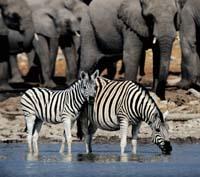
On the contrary, the fourth hypothesis that Masoro proposes in his article is very widespread. At the core of this hypothesis is the damage caused by free radicals. Precisely for those who believe in the hypothesis, free radicals oxidize proteins, lipids and even DNA, which causes aging of the organism.
In the mouse and in the rats it is well demonstrated that a low caloric intake reduces the damage by oxidation, and in the monkeys there are also indications that the same occurs. But why does that happen?
They do not know it. It may happen that with little food, few free radicals are generated, or that protective mechanisms are promoted, or that the damage that occurs, or that there are three at a time, is healed. They also do not know the influence of antioxidant enzymes.
In any case, they should clarify before if it is true that oxidation reactions are the main causes of aging. In fact, if this is not so, it does not matter so much the effect of the low caloric intake on the oxidation reactions as regards the lengthening of life.

Five, six, seven
The fifth hypothesis is based on another change that they have noticed in those of low caloric contribution: fasting, insulin and blood glucose are less abundant than the others. It has also been seen by volunteers who have participated in the CALERIE experiment, and although they do not know what will happen in the long term, rodents and monkeys who have followed a lifelong diet have shown that they continue to maintain low concentrations of insulin and glucose.
In addition, several species of monkeys have shown that the low concentration of insulin and long-term blood glucose prolongs life. Now researchers are studying the functioning of the low-calorie glucose insulin system, as there can be the key. Or one of the keys.
There are more hypotheses. The sixth refers to the system formed by the growth hormone and its receptor. Almost 15 years ago they saw that the concentration of a growth hormone in blood decreases in the low-calorie mouse. Subsequently, genetically modified mice have been investigated to prevent the creation of this hormone and have shown that they live longer than conventional mice.
From these experiments it follows that the low caloric intake influences in some way the system that form this hormone and its receptor, which influences throughout its life. But they have to continue to delve into it.
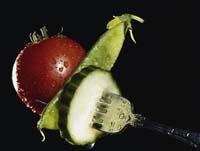
Hormesía Hormesía
Hormesía is a very curious phenomenon. According to scientists, a harmful agent (radiation, a chemical...) has a beneficial effect if given at low doses or intensities. For example, small doses of vitamins and minerals are necessary for life, they are essential. However, they are toxic in high doses.
For Masoro, the benefit that a stressor of low intensity produces in the organism is the hormesía, like prolongation of the life, delay in the aging, protection against diseases related to the aging, increase of the ability to combat the strong stressors... And it proposes that a low caloric intake is a stressor of low intensity that is due to the hormesía.
But, is taking few calories a low-intensity stressor? According to Masoro, the concentration of corticosterone in blood seems to be. In fact, stress produces corticosterone, and long-term studies have shown that low-calorie mice have a high content of corticosterone.
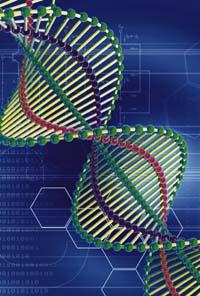
And does the low calorie intake increase the ability to combat strong stressors? For Masoro, the answer is affirmative again: the little caloric rats come before the others after being operated, resist better heat, the toxic products hurt them less...
All this helps to lengthen life. Masoro also mentions the possible molecular mechanisms underlying it. For example, a high concentration of corticosteroids protects against inflammation and it is related to aging. On the other hand, it considers that low caloric intake favors the activity of protective genes against harmful agents. In addition, it seems that the activity of genes encoding sirtuin proteins is encouraged.
For all this, Masoro defends the hypothesis of the hormesía. And it is not the only one, since many other experts agree on this hypothesis and from there have focused their research. Yes, from those studies to a magical solution that will prolong life there is a huge leap. Do not believe, therefore, that from day to day we will have in our hands the key to live hundreds of years.
